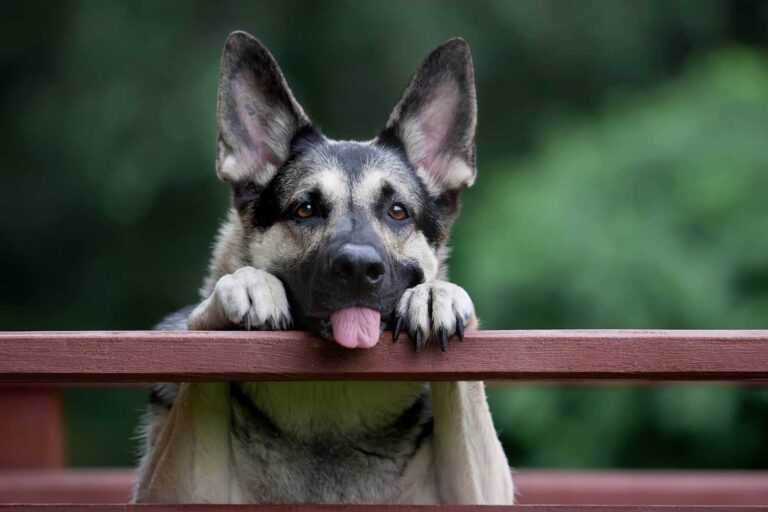Yes, a dog’s mouth is not cleaner than a human’s. While popular belief suggests otherwise, the fact is that a dog’s mouth carries numerous bacteria, some of which can be harmful to humans.
These bacteria can cause infections if they come into contact with open wounds or mucus membranes. However, the bacteria in a dog’s mouth are usually tailored to its own biology and may not necessarily cause harm to the dog. On the other hand, human mouths also host bacteria, but our systems are better equipped to handle them.
That being said, proper dental hygiene is essential for both humans and their furry friends to maintain oral health.
Is A Dog Mouth Cleaner Than A Human’s: Debunking The Myth
Origin of the cleaner dog mouth myth: The belief that a dog’s mouth is cleaner than a human’s dates back centuries, stemming from the idea that canine saliva possesses healing properties. However, this notion lacks scientific backing.
Comparing microbial flora in dog and human mouths: Studies have revealed a diverse range of bacteria in both dog and human mouths. While some bacteria are shared between species, certain pathogens are unique to each.
Instances where dog mouths can be harmful to humans: Despite popular belief, dog mouths can pose health risks to humans. Dogs can transmit various bacteria through licking, and close interactions with pets have been connected to certain infections.
Busting Common Myths About Dog Mouths
Bacteria Levels Comparison: Studies have shown that the bacterial composition in a dog’s mouth can be quite different from that of a human’s. While both contain bacteria, the types and quantities vary, making direct comparisons complex.
Healing Properties of Dog Saliva: The belief in the healing properties of dog saliva has been long debated. While dog saliva does contain enzymes with potential antibacterial properties, it’s essential to be cautious due to the risk of infection transmission.
How a Dog’s Diet Affects Their Mouth’s Cleanliness: A dog’s diet plays a crucial role in their oral hygiene. Certain foods can contribute to plaque and tartar buildup, leading to dental issues. Conversely, high-quality diets and dental chews can aid in maintaining a cleaner mouth.
Human Oral Hygiene Vs. Canine Licking Habits
Human dental care routines: Regular brushing and flossing, along with dental check-ups, are vital for maintaining oral hygiene. Adhering to a balanced diet and limiting sugary foods also contributes to overall dental health.
Dogs’ natural mouth-cleaning behaviors: Canine licking can aid in removing food particles and act as a form of grooming. However, their mouths may still harbor bacteria and other harmful microorganisms that can be transferred through licking.
The impact of environmental factors on oral cleanliness: Environmental factors such as diet, exposure to germs, and oral care practices greatly influence oral cleanliness in both humans and dogs. Implementing proper hygiene habits and regular veterinary check-ups can help in maintaining oral health for pets.
Assessing Dental Health In Dogs And Humans
Common dental ailments in dogs and humans: Both dogs and humans can experience common dental issues such as plaque buildup, gum disease, and tooth decay. Maintaining good oral hygiene is crucial for preventing these problems in both species.
Preventative care for maintaining oral health: Regular brushing, a balanced diet, and dental chews can help prevent dental issues in dogs and humans. Additionally, scheduling regular dental check-ups with a veterinarian or dentist is essential for early detection and treatment of any dental problems.
Role of regular veterinary and dental check-ups: Veterinary and dental check-ups play a vital role in maintaining oral health in dogs and humans. These check-ups help in identifying any dental ailments at an early stage and ensuring proper treatment and care to prevent further complications.
Scientific Studies On Mouth Bacteria
Scientific studies have examined the bacterial composition of the mouths of dogs and humans. Research findings suggest that there are significant differences in the types of bacteria present in the oral microbiome of each species. However, it is important to consider the limitations and factors that affect comparative analysis. Understanding the zoonotic potential of oral pathogens is crucial in evaluating the transmission of bacteria between dogs and humans. The complexity of the factors involved in oral health highlights the importance of continual research in this field.

Credit: www.myarlingtonvet.com
The Role Of Saliva In Oral Health
Saliva plays a crucial role in maintaining oral health for both dogs and humans. It aids in the digestion process, helps in swallowing, and also has antimicrobial properties that contribute to oral hygiene. In dogs, saliva contains different enzymes compared to humans, such as lysozyme, while human saliva contains amylase for carbohydrate digestion. The composition and effectiveness of saliva can be influenced by various factors, including diet, hydration levels, and overall health. Understanding the functions and differences in saliva between dogs and humans can provide valuable insights into oral health maintenance for both pets and their owners.
Practical Tips For Dog Owners
Is a Dog Mouth Cleaner Than a Human’s
Keeping your dog’s mouth clean is essential for their overall health. Dogs can transmit bacteria through their bites, posing a risk of infections. Therefore, it’s crucial to practice proper hygiene and dental care for your pet. Start by choosing the right dental care products designed for dogs to maintain oral hygiene. Regular brushing and dental check-ups are recommended to prevent dental diseases and reduce the risk of infections from dog bites. By following these practical tips for dog owners, you can ensure your pet’s mouth is clean and healthy, promoting their well-being and safety.
Frequently Asked Questions Of Is A Dog Mouth Cleaner Than A Human’s
Is A Dog’s Mouth Cleaner Than A Human’s?
Generally, no. Though dog saliva has some antibacterial properties, their mouths can harbor bacteria that aren’t present in human mouths.
Can You Get Sick From A Dog Licking Your Face?
Yes, it’s possible. Dogs’ mouths can contain harmful bacteria such as salmonella and E. coli, which can be transmitted through licking.
How Should I Protect Myself From Germs When Interacting With Dogs?
Ensure your dog is up-to-date with vaccinations, practice good hygiene after contact, and discourage face licking to minimize germ exposure.
What Are The Benefits Of Interacting With Dogs Despite Potential Germs?
Interacting with dogs can reduce stress, improve mood, and provide companionship and emotional support. Just practice good hygiene.
Conclusion
In light of the evidence, it’s clear that the notion of a dog’s mouth being cleaner than a human’s is not entirely accurate. While dogs’ saliva has antibacterial properties, their mouths harbor bacteria that can be harmful. Ultimately, maintaining good hygiene for our pets and ourselves is key.
Understanding the differences can help foster a healthier relationship between humans and our furry companions.



